Downsizing’s popularity created the tiny house craze, and Toyota combines downsizing and outdoor adventure with its Tacozilla Tacoma Camper¹, a backwoods overlanding-ready “micro-house” rig that pays tribute to Toyota campers from the ’70s and ’80s. Based on a Toyota Tacoma TRD Sport pickup, Tacozilla debuts today in Toyota’s 2021 Specialty Equipment Market Association (SEMA) Show display (Central Hall, Booth No. 24800) at the Las Vegas Convention Center. It is the ultimate expression of overlanding, as it joins other adventure-ready concepts in the Toyota booth this year.
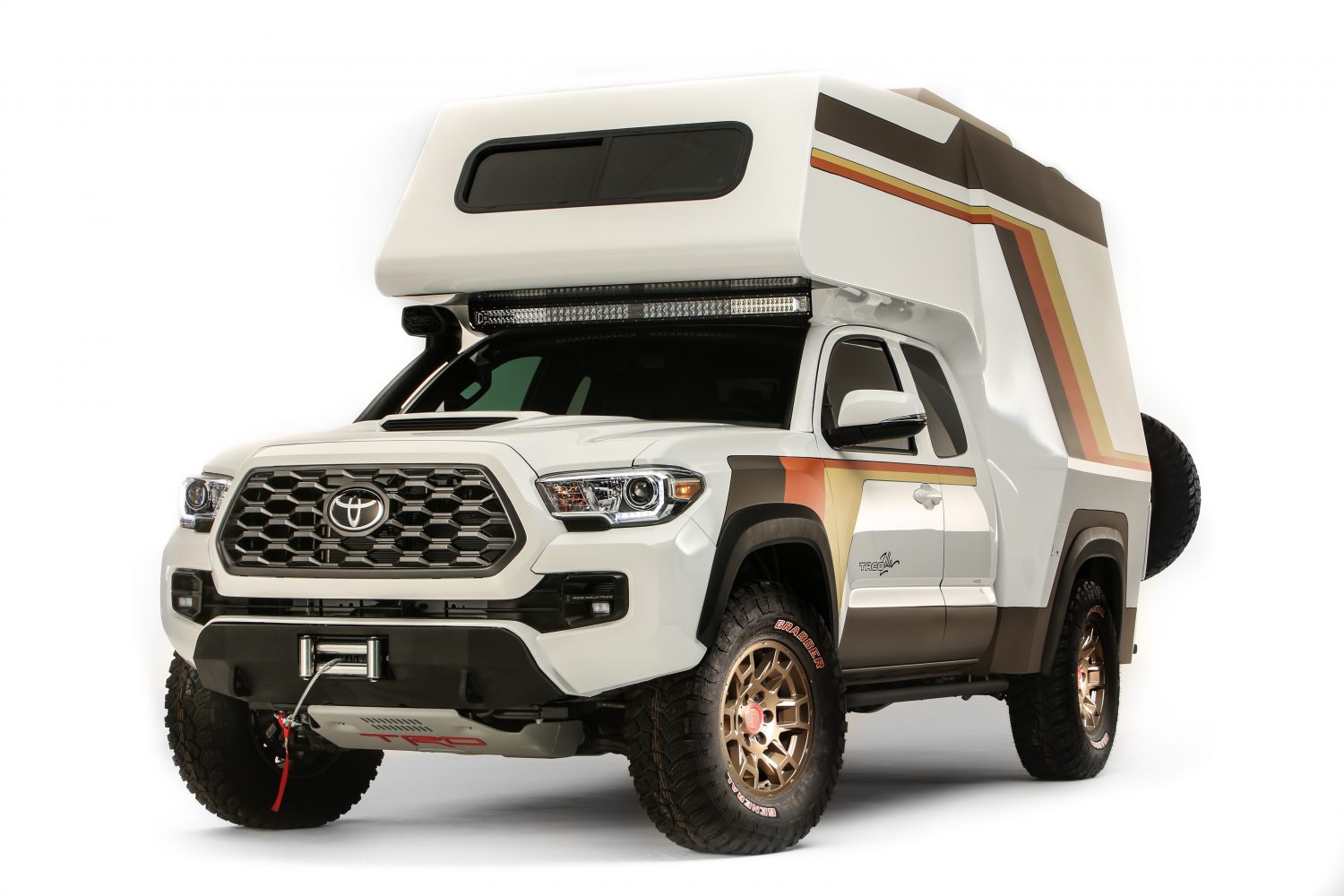
“Tacozilla is an outstanding symbol of Toyota’s go-anywhere brand promise to our many owners who love overlanding and outdoor fun,” said Lisa Materazzo, group vice president – Toyota Division Marketing. “It’s going to be hard to miss Tacozilla, whether walking the SEMA show or at that campsite or off-road trail!”
Designed and built by Marty Schwerter and his team at the Toyota Motorsports Garage, Tacozilla is 100% custom.
“We really didn’t want it to look like a refrigerator on the back of a truck, so you’ll see it’s all rounded edges,” said Schwerter.
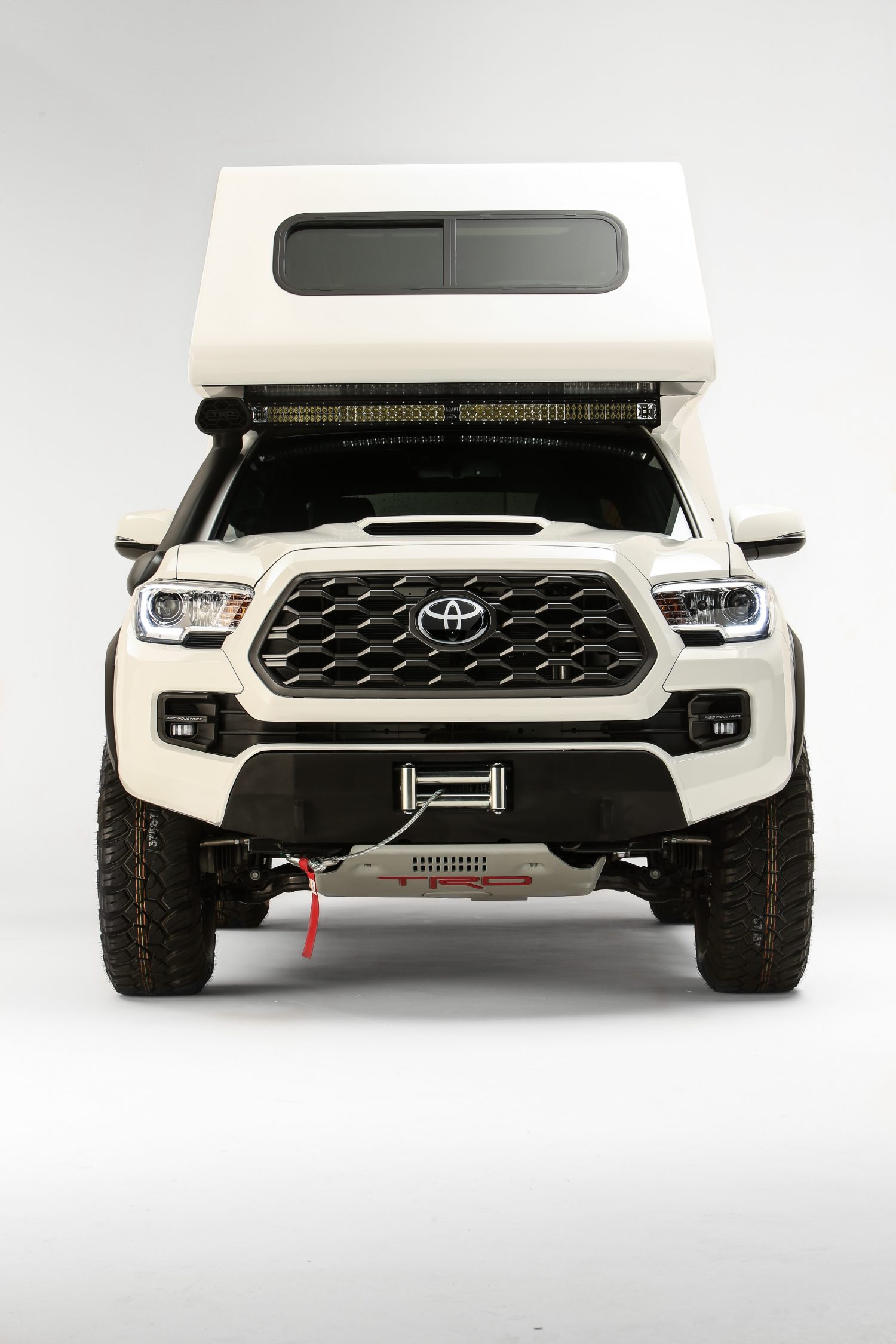
While the easiest solution was to have sharp edges everywhere, Schwerter believed rounded edges and smooth aluminum surfaces would better complement the Tacoma’s body lines and look more integrated and finished.
“Our goal was to build a vehicle that is engineered correctly but also made to look really cool,” Schwerter said. “Being around race cars my whole life, race cars are cool looking. I want campers to be cool looking, too.”
The team started by removing the Tacoma’s bed to determine what needed to be removed and relocated to create space.
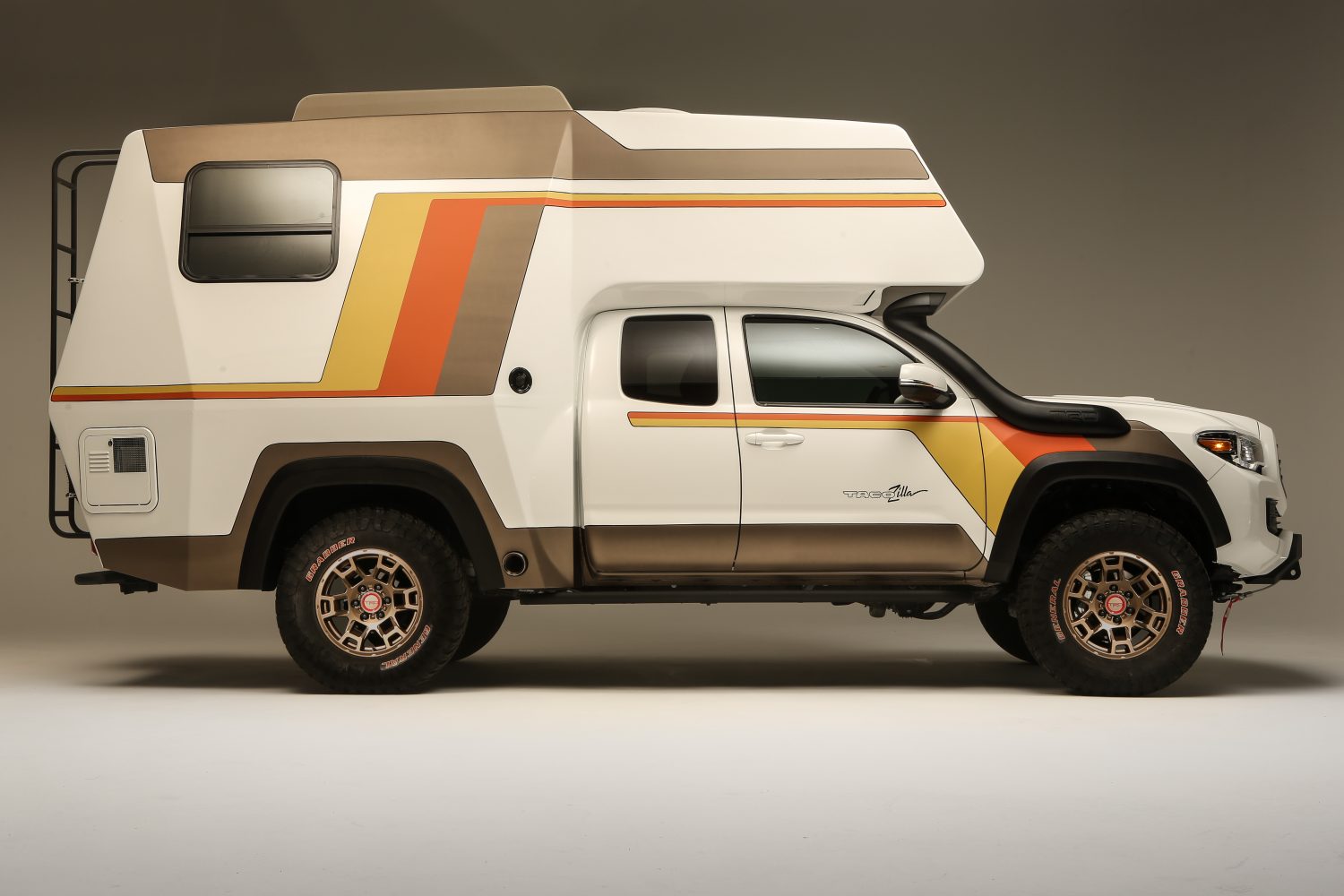
“The team needed to go below frame height in order for a person to be able to stand up inside,” Schwerter said.
Next was shrinking and repackaging everything, so someone over 6 feet tall can walk the length of the interior with enough room for the camper’s amenities and occupants.
The Toyota Motorsports Garage team then built a basic camper frame to test the initial fitment and dimensions. From there, it was time to fine tune and reinforce the frame. This visually tied in with the Tacoma’s body lines while maximizing interior space. And the narrower top and bottom makes it easier to navigate trails and avoid trees and obstacles.
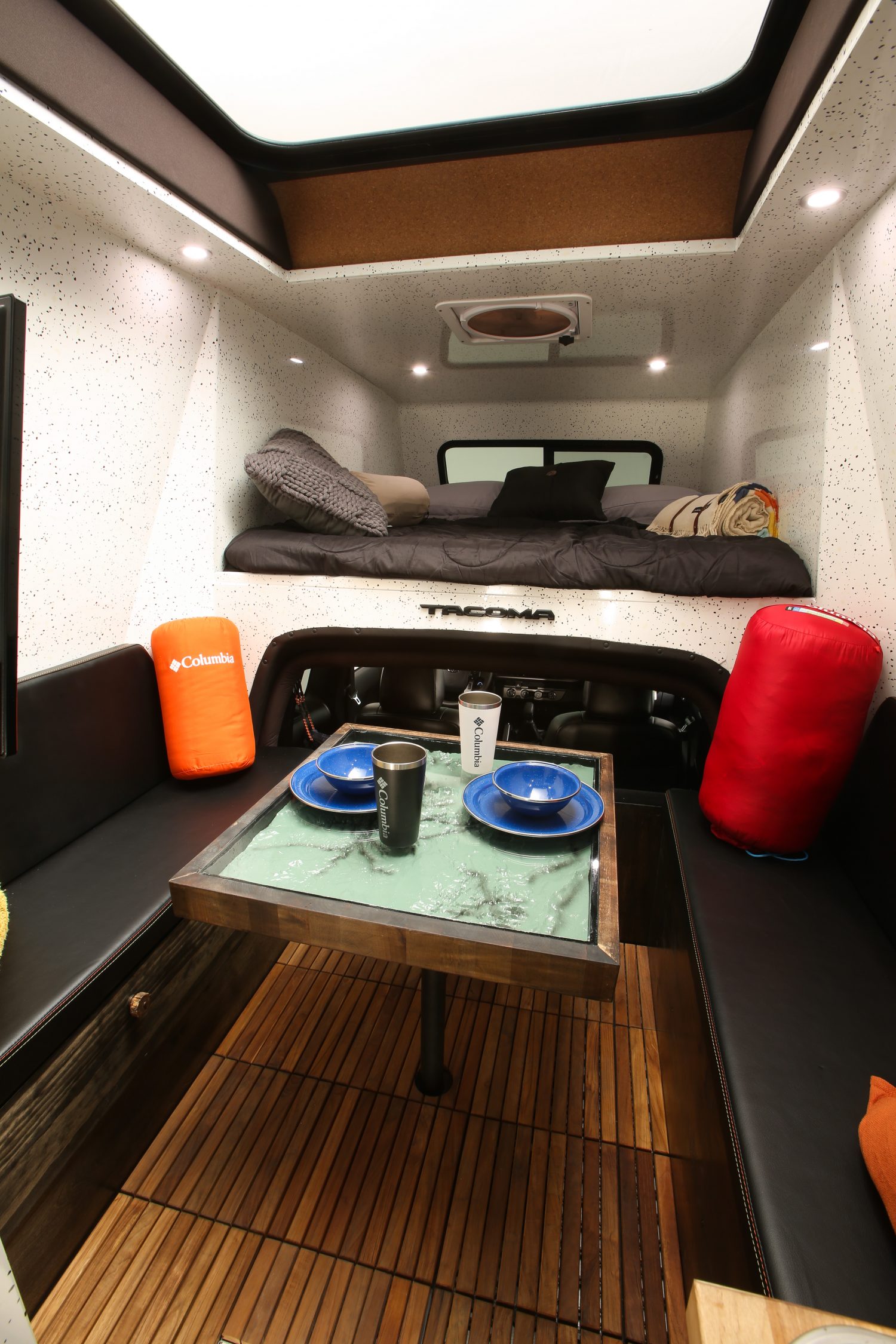
This tapered shape also made it challenging to fabricate the camper’s rear door. The team could have fitted a flat door but decided the result would not look as integrated. All in all, the team spent well over 100 hours designing the rear door alone.
The team contended with another vital structural challenge, creating the pass-through opening between the Tacoma’s cabin and the camper structure. The solution required enough support and bracing for off-road driving, enabling the cabin and camper structures to work together and twist on uneven surfaces without compromising the vehicle or creating unsafe driving situations.
In order to make good use of the Tacoma’s existing features, the team was able to fit the Tacoma’s original rear fender flares onto the camper’s wheel well openings and added two inches of clearance to the standard Tacoma TRD Sport suspension. To ensure traction, the team fitted a set of 285/70/17 General Tire Grabber X3 all-terrain tires.
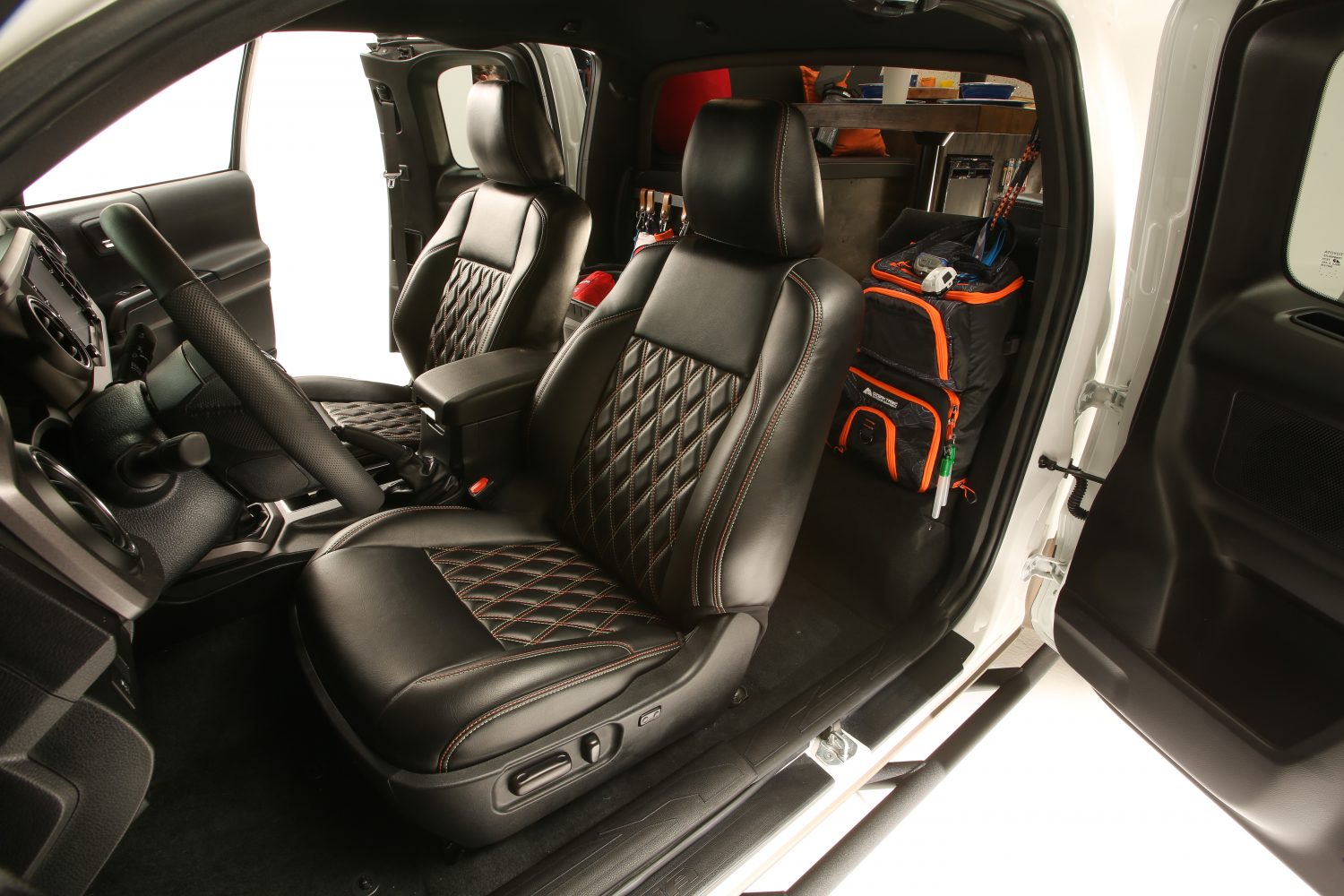
Like most custom builds, the process is fluid and improvements can happen midstream. For example, the team was well into skinning the camper structure in aluminum when they decided to add a large pop-up Lexan skylight to provide ambient light, natural air circulation and additional headroom. Other custom work included a fuel tank filler that is completely separated from the camper to ensure fuel fumes remain isolated and a second battery in the Tacoma’s engine bay to help supply additional power without taking up space in the already space-limited camper.
Complete Customs in McKinney, Texas, a long-time and trusted Toyota partner, provided customization support and handled the paint work. The finished camper features a white base coat with accents reminiscent of the vintage yellow, orange and bronze scheme. And the fully insulated interior indeed looks like the micro-house the team envisioned, with teak sauna-style flooring, a full bathroom with hot-water shower, a fully operational kitchen with a stove and sink, a 3D-printed dining table that converts to a backlit piece of wall art and ample sleeping space.
¹Vehicle is a special protype project vehicle modified with non-genuine parts and accessories that may make the vehicle illegal to operate, void the warranty, and impact the safety and performance of the vehicle.